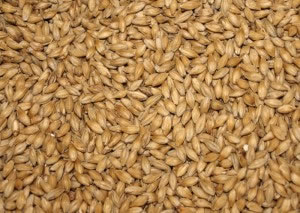SAB Makes Large Investment in Ambitious New Maltings Plant
 Construction on the new plant will begin during the course of this year, and will produce 130 000 tonnes of malted barley a year once it is completed in 2015. It will allow SAB to reduce the amount of malted barley it imports, and to further its programme of developing the local agricultural sector by supporting small black farmers. Malted barley is a critical component in the brewing of beer.
Construction on the new plant will begin during the course of this year, and will produce 130 000 tonnes of malted barley a year once it is completed in 2015. It will allow SAB to reduce the amount of malted barley it imports, and to further its programme of developing the local agricultural sector by supporting small black farmers. Malted barley is a critical component in the brewing of beer.
New SAB MD Mauricio Leyva said the construction of the new plant was an important development for the company. “The new maltings plant will have significant cost saving and growth benefits for SAB. It makes good financial sense to undertake this investment. It will allow us to reduce our exposure to volatile international markets and replace a significant share of our imported malt and barley with local barley.”
SAB currently sources about 65% of its barley locally and, once the new maltings plant is up and running, this will potentially increase to between 90% and 95%.
“We have been looking at ways to locally source more of our agricultural raw materials, including barley, for some time, building on the work we have been doing with our Barley Breeding Programme and with local farmers to develop competitive local barley varieties. Additional barley trials have been undertaken in the North West and more recently with emerging farmers in Limpopo.”
Leyva said: “We will partner with leading suppliers to ensure an innovative and cost-efficient design using cutting-edge technology. We will also strive to ensure we maximise local industry involvement in the construction of the new plant in order to help develop the communities in which we operate.”
SAB executive chairman Norman Adami said the new plant was a win-win scenario and showed SAB’s clear commitment to working for South African society. “It will allow us to drive even higher local sourcing of barley which will, in turn, help drive the empowerment of small farmers in some of the most poverty stricken areas of SA.”
The maltings plant will be built next to the existing Alrode brewery, with the land having already been secured and geotechnical trials currently under way. Construction on the new plant will begin once the land ownership transfer has taken place, which is expected during the middle of this year.
SAB currently has two malting plants, one at Caledon in the Western Cape which malts about 180 000 tonnes of barley a year and an existing plant at Alrode which malts about 40 000 tonnes a year. The existing Alrode plant is about 40 years old and coming towards the end of its economic life. It will be decommissioned once the new plant is fully operational.
SAB’s annual spend on raw agricultural materials in South Africa is about R2-billion. Each year, SAB buys more than 1,8-million tons of barley, GMO-Free maize, hops, apples and grapes. A consistent supply of raw materials is critical to the company, which supplies millions of people each year with their preferred drink, be it beer or soft drinks.
To ensure a secure, diversified and sustainable supply chain, SAB is committed to local procurement and agricultural development by supporting small-scale and emerging black farmers, and supports several projects such as the barley and GMO-free maize farmers in Taung in the North West and the farming of GMO-free yellow maize by local farmers in KwaZulu-Natal.
More than 90% of SAB’s total purchases are purchased from South African Companies, and this investment will take SAB’s local procurement spend to between 93% – 95%.
SAB’s involvement with malting begin with the construction of a malting plant at the company’s Isando Brewery in the late 1950’s, resulting in increased involvement in local malting barley development programmes.
The 1970’s marked SAB’s first serious attempt to move local production of malting barley towards a degree of self-sufficiency. In 1972, SAB acquired Nasionale Mout’s sorghum plant at Alrode and converted it into a barley plant, quadrupling its processing capacity in 1978.
Caledon Maltings is the biggest malting facility in the southern hemisphere, with an annual capacity of 180 000 tonnes of malt.
Malted barley is barley that has been allowed to germinate to a degree and then is dried. This is done by soaking the barley seeds in water for several days to allow it to germinate and sprout. The germination process is stopped after about five days by fanning the grains with hot, dry air in a kiln. The roots are removed and the malt cools down and is allowed to rest for about three weeks, after which it is ready for brewing.


































